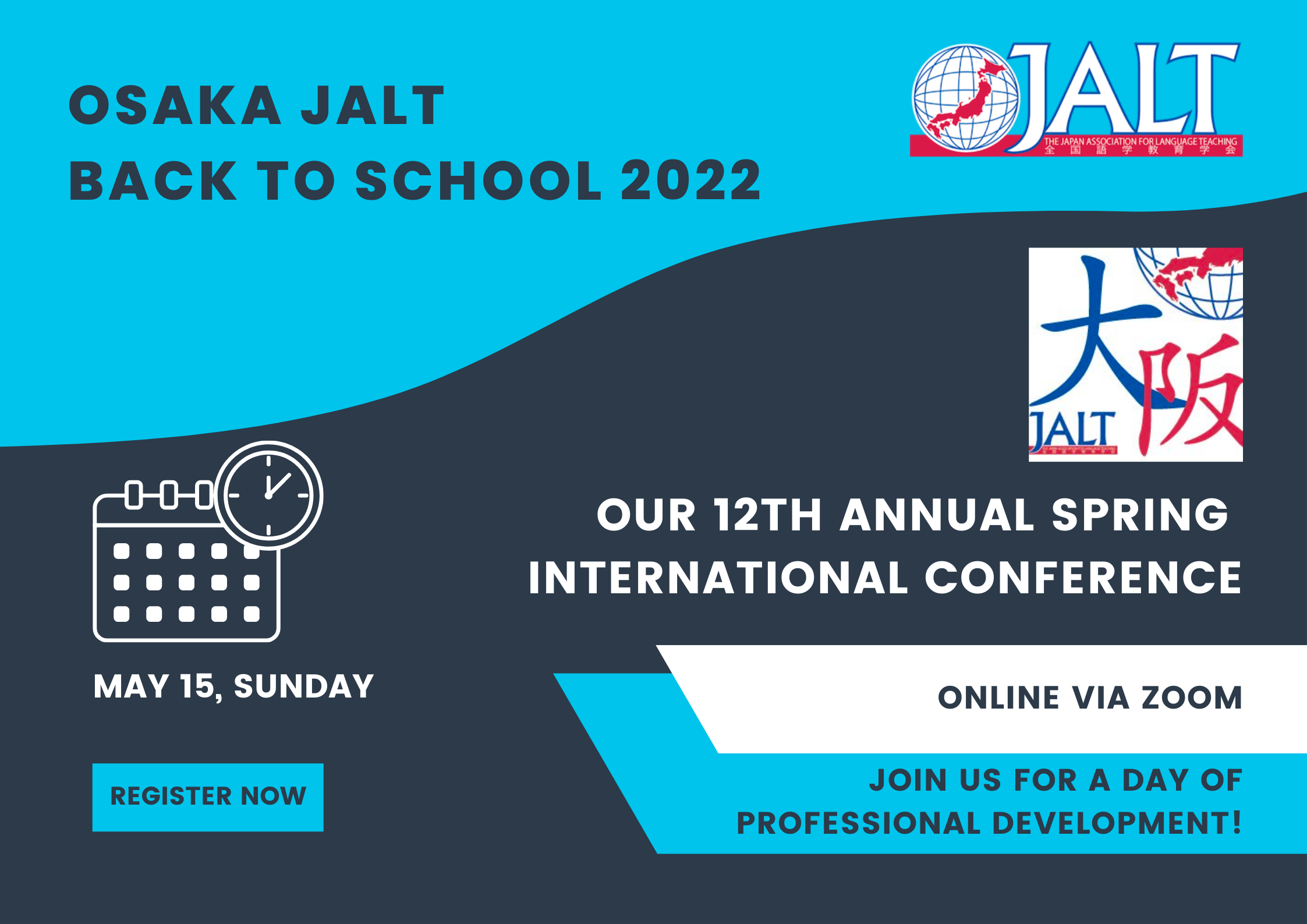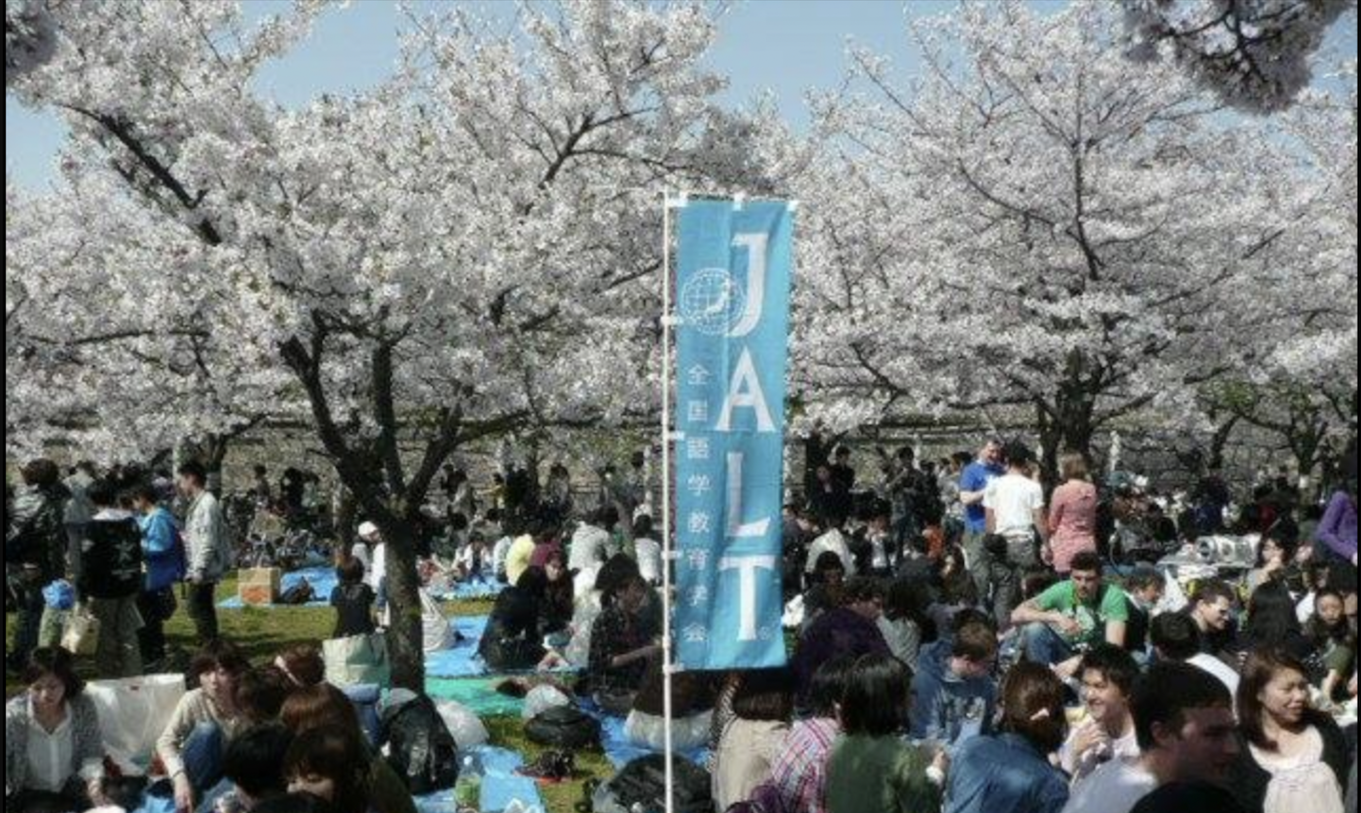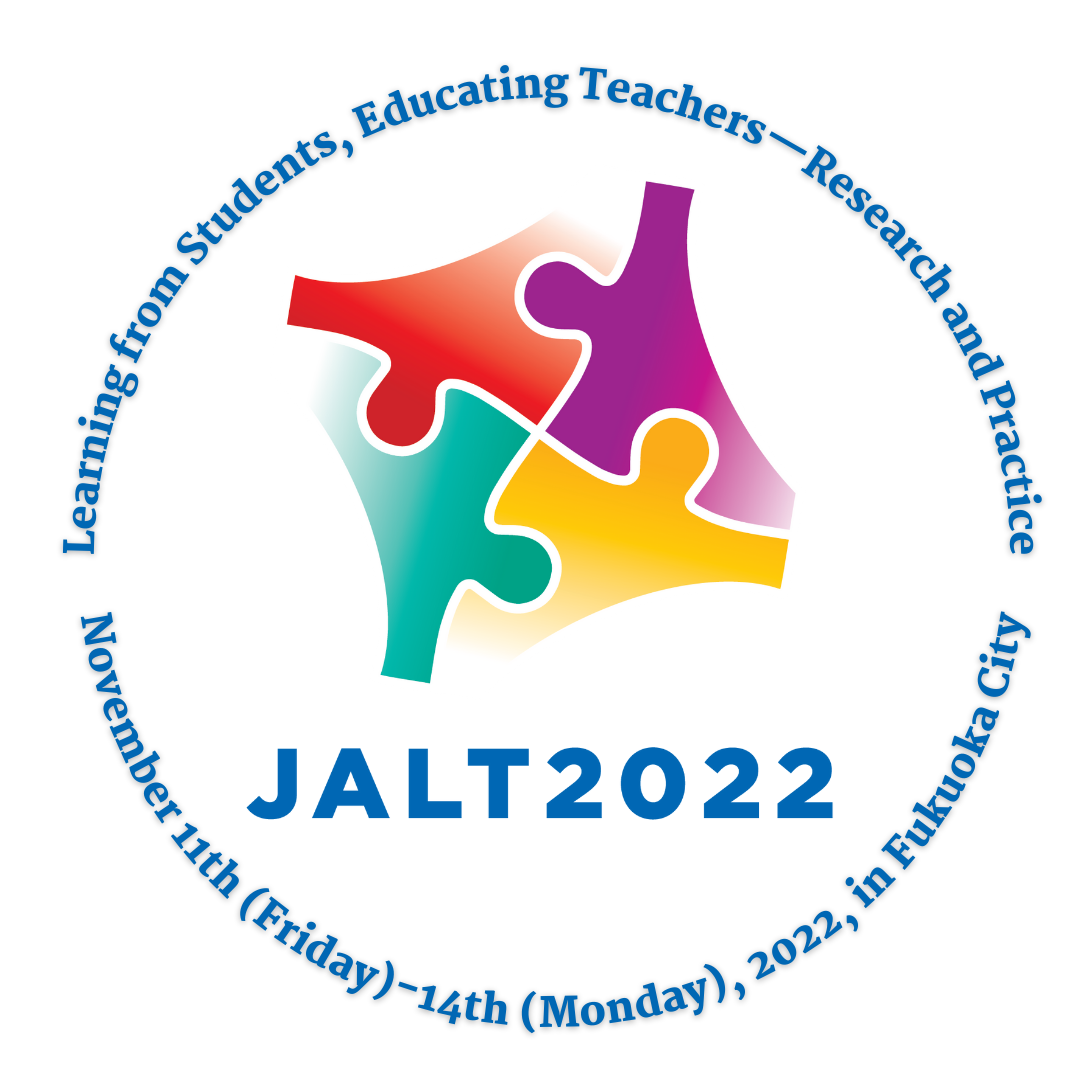Osaka JALT Back to School 2022
 Sunday, May 15, 2022 - 9:30am to 9:30pm
Sunday, May 15, 2022 - 9:30am to 9:30pm
Back to School 2022 is Osaka JALT’s 12th annual spring conference aiming to share ideas on a wide range of topics related to language teaching and learning to help everyone in the new academic year. This year's conference will again be online, which, as in the past two years, has the benefit of allowing us to welcome presenters and participants from all around the world. To get a sense of what to expect, and to see some of what you might have missed last year, please see the schedule and some of the recorded sessions from last year's conference and the presenters' bios and abstracts.
Please click here to view the abstracts for the conference presentations.
Here is the schedule for the Back to School Conference, please click on the presentation names to watch the videos.
Jennifer Yphantides – A grassroots effort to help Ukrainian refugees learn English
Jennifer Yphantides is an Associate Professor in the Faculty of Liberal Arts at Soka University in Tokyo.
Lori Zenuk-Nishide – Model United Nations: Building English as a lingua franca and 21st century learning skills
Lori Zenuk-Nishide is the Director of Model United Nations Programs at Kobe City University of Foreign Studies. She has taken delegations to over 60 conferences, and co-founded a high school and university conference since 1990.
Paschal Orjika – Self-directed learning in the university classroom
Paschal Orjika, is a graduate of Nanzan University, and currently teaches at Maple English School. He holds both a Bachelor's and a Master's degree. His area of specialization is self-directed learning, human resource development and adult education.
John Carle – How to create a digital workbook
John Carle is the author of The English Gym series, written under the pen name, Jon Charles. His books have been used at over twenty universities and language schools in Japan.
Wade Muncil – Starting a startup from the start
Wade Muncil holds a Master of Arts in Teaching from the School for International Training and is presently teaching at Osaka Jogakuin University/College after spending nine years teaching in the Western Region of The United Arab Emirates. His interests are hiking, documenting and preserving the great cultures of our planet, and promoting service learning.
Eucharia Donnery – The International Virtual Exchange (IVE) Project: Meeting low-level EFL learner needs
Eucharia Donnery works as a coordinator of communicative English at the World Language Center, Soka University, Tokyo.
Terry Tuttle – A how-to video activity sequence for Japanese high school EFL students
Terry R. Tuttle is an ALT for Higashiosaka City, an Osaka JALT Member-at-Large, and a GALE SIG Co-Coordinator. He is pursuing a M.S.Ed degree with a concentration in TESOL at Temple University, Japan Campus.
Paul Goldberg – Xreading: What’s new and what’s next
Paul Goldberg has taught English for over 20 years, and is the founder of the online system, Xreading, which he developed to make extensive reading more accessible for students and easier for teachers to manage.
Paul Mathieson & Claire Murray – The AWL Readers: An Academic Vocabulary Story
Paul Mathieson is an associate professor at Nara Medical University, where he teaches medical students and nursing students. He is also a PhD candidate at Kyoto University.
Claire Murray has an MA in Applied Linguistics from the University of Birmingham, UK. She is currently an ESP lecturer at Nara Medical University.
Thomas Boutorwick – ESL Speed Readings, the free mobile app
Thomas (TJ) Boutorwick received his PhD in Applied Linguistics from Victoria University of Wellington in 2017. His research focuses on vocabulary development through reading. He also develops educational software and currently resides in Hiroshima.
Zoe Barber – (Un)willing to communicate?: Incorporating different modes of participation in the classroom
Zoe Barber is from Australia and has taught English at various educational levels in Japan for 10 years. She is a graduate of the Queensland University of Technology and currently teaches at Konan University.
Anthony Walsh – A step-by-step guide for speech contests
Anthony Walsh is from Melbourne, is a graduate of University of Southern Queensland and currently teaches at the University of Fukuchiyama. He is trying to stay healthy by learning to cook various dishes.
Elizabeth Leigh – A tour of the “Zero-waste” town of Kamikatsu, Tokushima prefecture
Elizabeth Leigh is from the UK, is a graduate of Manchester University, and is currently a Tokunin teacher at Osaka Metropolitan University. Her interests include hiking, swimming and scuba diving, as well as environmental issues.
Eric Martin & Robert Kerrigan – Presentation and evaluation of an Extensive Listening program using Xreading
Eric Shepherd Martin teaches at Momoyama Gakuin University and is a candidate for a Ph.D. in applied linguistics from Temple University. He can be reached at ericshepherdmartin@gmail.com.
Robert Kerrigan teaches at Shitennoji University and is pursuing a Ph.D. in applied linguistics from Temple University. He can be reached at kerrigan@shitennoji.ac.jp.
Michael Herke – From the known to the new: Everyday creative arguments for language learning
Michael Herke has been living in Kansai for over 20 years. He has taught in public and private institutions in Canada and Japan. He works in the Faculty of International Studies at Setsunan University in Osaka.
Matthew Wiegand – Re-evaluating expectations of camera use in online language classes
Matthew Wiegand: BA Cultural Anthropology, UC Santa Cruz, Global Japanese Studies, Meiji University. MA candidate at Waseda GSICCS. Teacher at University of Tsukuba Attached High School at Komaba, Sundai College of Business and Foreign Languages
Mehrasa Alizadeh – Professional development and distance learning with Gather.Town: A preliminary report
Mehrasa Alizadeh is an assistant professor at the International Professional University of Technology in Osaka, where she teaches EFL courses. Mehrasa's research interests include blended, mobile and immersive learning in second language education.
 Back to school,
Back to school,  Conference
Conference 


